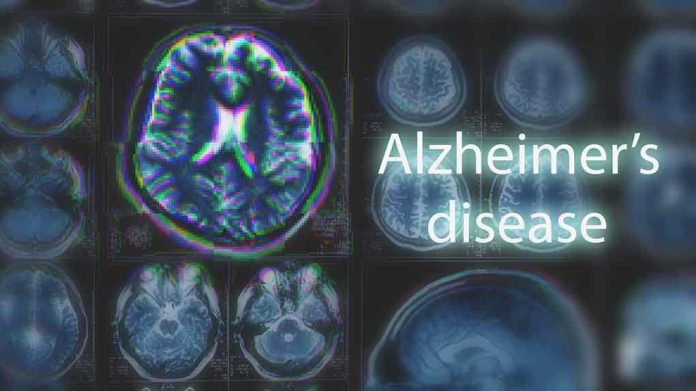
Lithium’s newfound role in Alzheimer’s treatment could redefine the approach to battling this debilitating disease.
Story Highlights
- Studies reveal lithium depletion in Alzheimer’s brains as a critical factor.
- Novel lithium compounds promising in reversing memory loss in animal models.
- Clinical trials underway for new lithium formulations in Alzheimer’s patients.
Lithium’s Critical Role in Alzheimer’s Disease
Recent research has uncovered that lithium, a mineral long used for treating bipolar disorder, plays an unexpected and crucial role in Alzheimer’s disease (AD). Scientists have found that lithium depletion in the brain is an early event in Alzheimer’s pathology. This discovery refocuses the approach to diagnosing and treating Alzheimer’s by emphasizing mineral depletion rather than just protein aggregation.
Advancements in Lithium-Based Treatments
Novel lithium compounds have shown promise in reversing memory decline in animal models, prompting new clinical trials. These compounds bypass amyloid sequestration—an event where amyloid plaques trap lithium, accelerating memory loss. Current trials are investigating the safety and efficacy of these treatments in humans, potentially offering hope for patients with mild cognitive impairment and Alzheimer’s disease.
Experts highlight the need for larger, well-controlled clinical trials to determine optimal dosing and safety, particularly given lithium’s known toxicity at higher doses. Nonetheless, the potential for lithium-based therapies to become standard treatments for Alzheimer’s is creating cautious optimism among clinicians and researchers.
Implications and Future Prospects
If successful, lithium supplementation or novel lithium compounds could become standard interventions, fundamentally shifting the treatment paradigms for Alzheimer’s. This could also stimulate broader interest in mineral-based therapies for other neurodegenerative diseases. The economic and social impacts are significant, with the potential to improve patient outcomes, reduce the care burden, and offer cost savings to healthcare systems.
While ongoing trials are crucial for confirming these findings, the renewed focus on lithium offers hope for a tangible breakthrough in Alzheimer’s treatment—one that may finally address the root causes of this devastating disease.



